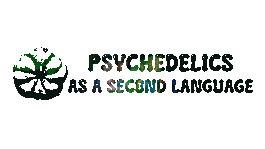Women Authors in Psychedelics: Celebrating Women’s History Month
Celebrate Women’s History Month with us!
Join us in honoring the incredible contributions of female authors in the realm of psychedelics.
We’re excited to showcase a diverse array of voices, each bringing unique perspectives, captivating stories, and groundbreaking research.
Dive into the fascinating world of psychedelics with our curated selection of newly released books. From personal journeys to scientific exploration, these books offer profound insights and thought-provoking narratives that enrich your understanding of psychedelics and their potential.
Support female writers and their invaluable contributions to the psychedelic discourse by adding these remarkable books to your collection.
Let’s uplift and amplify the voices of women in psychedelics, empowering them to continue shaping the conversation and driving positive change in this transformative field.
Join us on this journey of discovery and celebration as we explore the intersection of women’s history and psychedelic exploration.
Let’s honor the past, celebrate the present, and pave the way for a more inclusive and enlightened future. Happy Women’s History Month!
Women and Psychedelics: Uncovering Invisible Voices

This collection of short essays examines the place of women in the history of psychedelics.
While some of the subjects are pioneers in their own right, the authors in this collection go beyond merely adding women to the past in psychedelic history, exploring some of the significant ways that women have contributed to psychedelic knowledge.
Blending historical and anthropological approaches with a series of captivating interviews, this collection taps into women’s networks around the world throughout the 20th century. It reveals some of the sophisticated and creative ways women have influenced our understanding of psychedelics and how they will continue to protect these stories as we face our psychedelic future. Our collection intentionally moves beyond an American set of stories, teasing out networks in Latin America. This collection brings together authors from the Chacruna Institute and Chacruna Latinamérica to engage readers in conversations that move across time and place throughout the Americas. It is the first of its kind to balance non-English contributions through translation of stories exploring different cultural contexts outside the United States, where women have contributed to this enduring history.
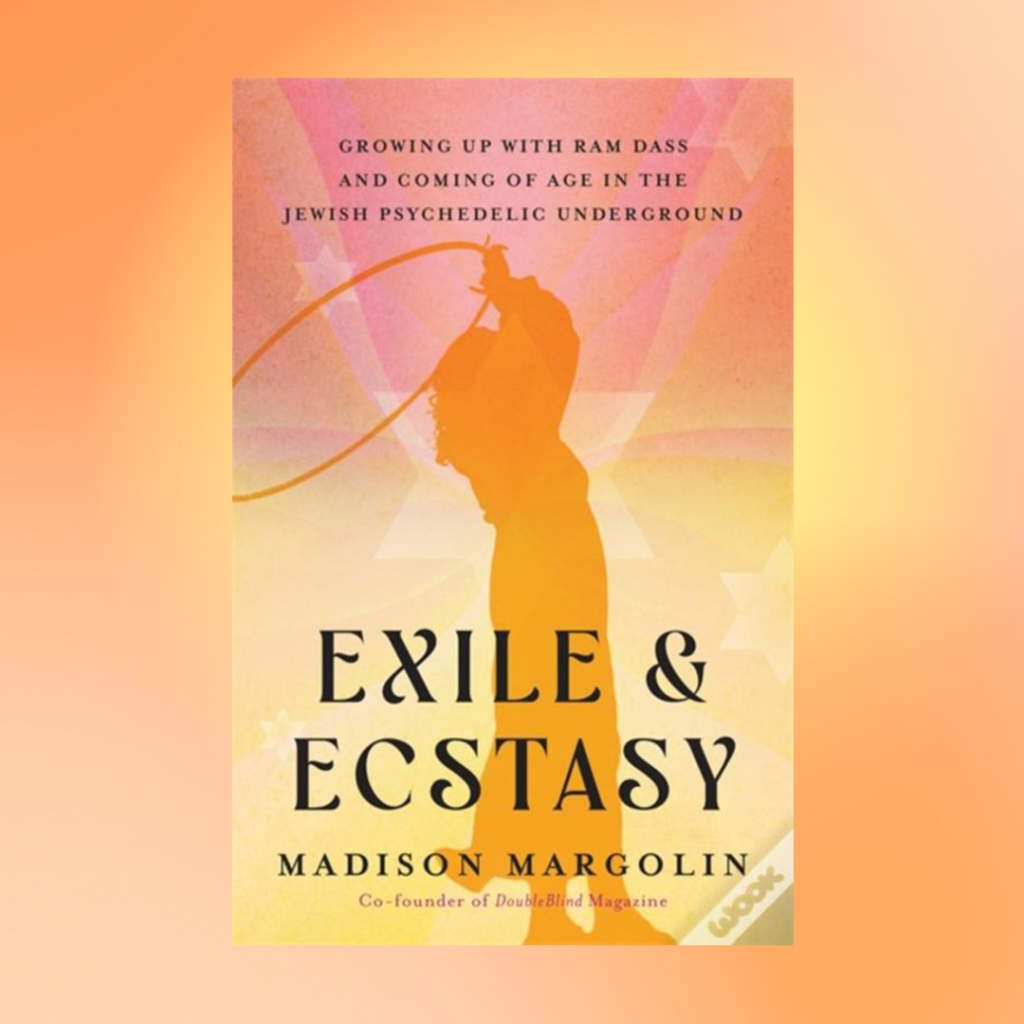
Through the perspective of having grown up among “HinJews” in the Ram Dass community and cannabis legalization movement, journalist Madison Margolin takes the reader on a journey inside New York’s Jewish counterculture and the Hasidic underground, reconciling her roots, tackling ancestral Jewish trauma, and finding intersectionality between the Jewish and psychedelic experience.
Exile and Ecstasy sets out to explore the psychedelic path that occupies the crossroads between the Ram Dass movement and Hasidism. It’s a path of seeking and escape, rebellion and return, medicine and magic.
Bridging the polar ends of the Jewish and psychedelic worlds, while buttressing the experience with expert reportage, Madison Margolin prods at Be Here Now to find its relevance and utility in a new generation, facing different issues than those Ram Dass faced as a generally well-to-do boomer. In doing so, she looks at solutions to our lack of presence and offers practices that help us integrate our psychedelic experiences in mundane life, as well as in the context of our roots and religious identities.
This book is for anyone looking to feel spiritually kindled, to make peace with where they come from, and to reconcile seemingly disparate experiences of spirituality and psychedelics, with traditional religion.
Good Chemistry: The Science of Connection from Soul to Psychedelics- Julie Holland

A psychiatrist and psychedelic researcher explores the science of connection—why we need it, how we’ve lost it, and how we might find it again.
We are suffering from an epidemic of disconnection that antidepressants and social media can’t fix. This state of isolation puts us in “fight or flight mode,” deranging sleep, metabolism and libido. What’s worse, we’re paranoid of others. This kill-or-be-killed framework is not a way to live. But, when we feel safe and loved, we can rest, digest, and repair. We can heal. And it is only in this state of belonging that we can open up to connection with others.
In this powerful book, Holland helps us to understand the science of connection as revealed in human experiences from the spiritual to the psychedelic. The key is oxytocin—a neurotransmitter and hormone produced in our bodies that allows us to trust and bond. It fosters attachment between mothers and infants, romantic partners, friends, and even with our pets. There are many ways to reach this state of mental and physical wellbeing that modern medicine has overlooked. The implications for our happiness and health are profound.
We can find oneness in meditation, in community, or in awe at the beauty around us. Another option: psychedelic medicines that can catalyze a connection with the self, with nature, or the cosmos. Good Chemistry points us on the right path to forging true and deeper attachments with our own souls, to one another, and even to our planet, helping us heal ourselves and our world.
Psyched: Seven Cutting-Edge Psychedelics Changing the World- Amanda Siebert
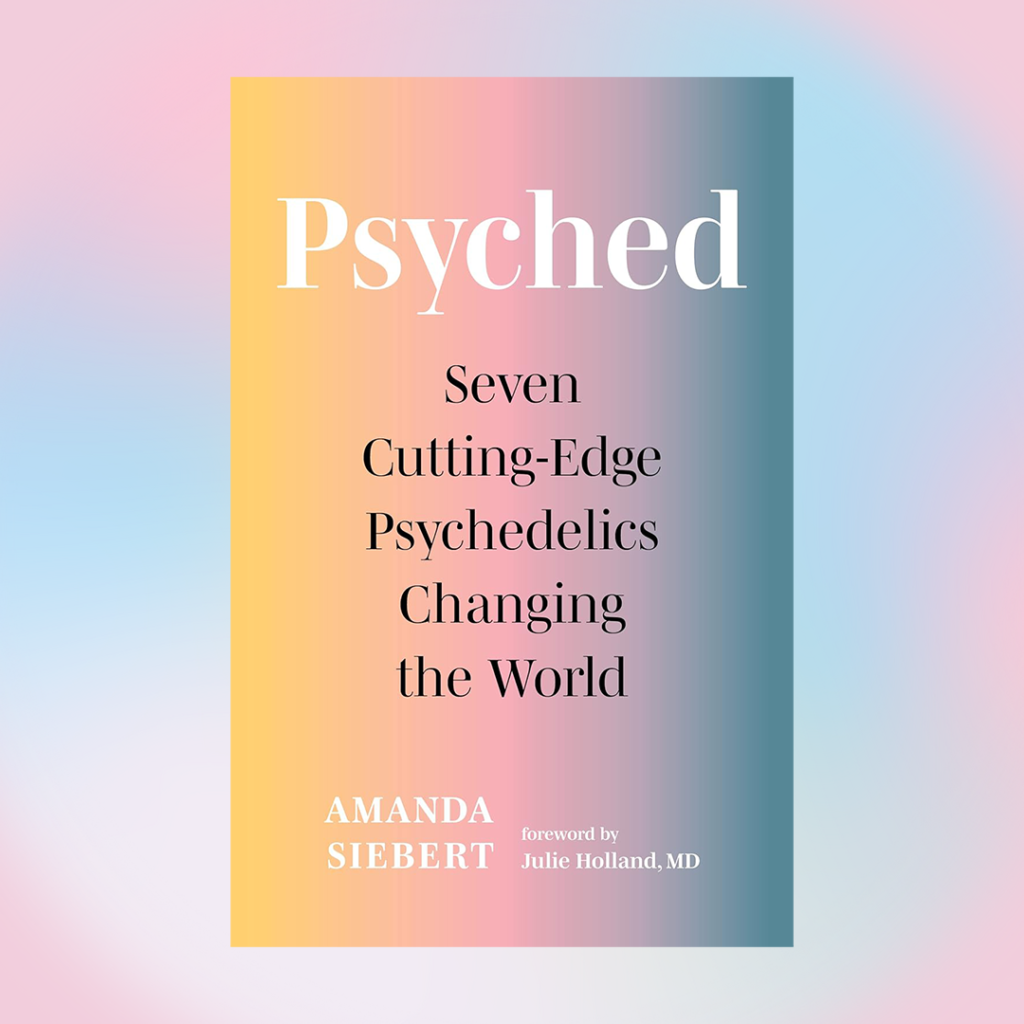
Psychedelics including psilocybin, MDMA, ketamine, ayahuasca and peyote are poised to revolutionize mental health and alter the wellness industry forever.
Once feared and misunderstood, psychedelics have emerged as one of the most promising therapies of the 21st century. Through cutting-edge research, substances such as MDMA and LSD are being recognized as powerful keys to healing and human improvement, offering solutions for mental health issues including PTSD and depression. Similarly, plant medicines like ayahuasca, peyote, and iboga, used since time immemorial by Indigenous cultures for spiritual purposes, have been shown to promote feelings of empathy, connection, and love for the self, others, and the world around us.
But how can everyday people benefit from psychedelics? And will they really transform healthcare as we know it?
In Psyched, health journalist Amanda Siebert explores the history, culture, and potential of seven psychedelic substances. She interweaves real-life stories, clinical research, and interviews with the world’s leading psychedelics experts and cultural allies to offer a definitive guide to these cutting-edge treatments.
I Feel Love: MDMA and the Quest for Connection in a Fractured World- Rachel Nuwer

The unlikely story of how the psychedelic drug MDMA emerged from the shadows to the forefront of a medical revolution–and the potential it may hold to help us thrive.
Few drugs in history have generated as much controversy as MDMA–or held as much promise. Once vilified as a Schedule I substance that would supposedly eat holes in users’ brains, MDMA (also known as Molly or Ecstasy) is now being hailed as a therapeutic agent that could transform the field of mental health and outpace psilocybin and ketamine as the first psychedelic approved for widespread clinical use. In I Feel Love, science journalist Rachel Nuwer separates fact from fantasy, hope from hype, in the drug’s contested history and still-evolving future. Evidence from scientific trials suggests MDMA, properly administered, can be startlingly effective at relieving the effects of trauma. Results from other studies point to its usefulness for individual and couples therapy; for treating depression, alcohol addiction, and eating disorders; and for cultivating personal growth. Yet scientists are still racing to discover how MDMA achieves these outcomes, a mystery that is taking them into the inner recesses of the brain and the deep history of evolution. With its power to dismantle psychological defenses and induce feelings of empathy, self-compassion, and love, MDMA may answer profound questions about how we became human, and how to heal our broken social bonds.
From cutting-edge labs to pulsing club floors to the intimacy of the therapist’s couch, Nuwer guides readers through a cultural and scientific upheaval that is rewriting our understanding of our brains, our selves, and the space between.

A comprehensive framework for ethical psychedelic medicine—a guide for therapists, trip sitters, and anyone concerned about upholding boundaries and safety in the entheogen and plant medicine community
Psychedelic advisor Rebecca Martinez lays out the groundwork for an ethical approach to 21st-century psychedelic therapy. Applying a social-justice lens to entheogenic practice, Martinez provides practical guidance for psychedelic sitters, advocates, explorers, and those practicing (or learning to practice) licensed psychedelic therapy.
As psychedelics become a more accessible pathway to healing, how do practitioners—and seekers—navigate complex issues in a wide range of settings? Here, you’ll learn skills like:
-
- Understanding consent and boundaries
-
- Building safe and ethical psychedelic experiences
-
- How to integrate the cultural and historical contexts of plant medicines
-
- Considering the psychological risks and benefits of psychedelic therapy
-
- How to apply a social-justice lens to entheogenic healing
Martinez also discusses how, in many corners of the psychedelic community, an overemphasis on positivity can overwhelm attempts to challenge abuses of power; dismantle internalized hierarchies; and acknowledge and integrate our own flaws and traumas.
An essential guide for any psychedelic therapist, entheogenic guide, or mind-expanding medicine enthusiast, Whole Medicine brings much-needed conversations about ethics, boundaries, and informed use out of the shadows for better, safer, community-centered psychedelic healing.
The Maps We Carry: Psychedelics, trauma and our new path to mental health- Rose Cartwright

What if treating misery as a medical problem is making us miserable?
Fact: Someone dies by suicide every 40 seconds.
Fact: Antidepressant use in the West has more than doubled in the last two decades.
Fact: Despite great leaps forward in other branches of medicine, no biological test can currently diagnose any mental health problem.
So where are we going wrong?
In this revolutionary book, Rose Cartwright reveals how the failure of the mental health system to cure her OCD led her to radical action. While she explored her trauma through a series of mind-bending psychedelic trips, Rose started to interrogate our dominant medical paradigm. What if people’s intense distress is not a symptom of illness, but a desperate expression of our need for love and connection? Rose set out on a quest to draw a new map of mental health, interviewing experts in psychiatry and neuroscience along the way: what she discovered will have implications for generations to come.
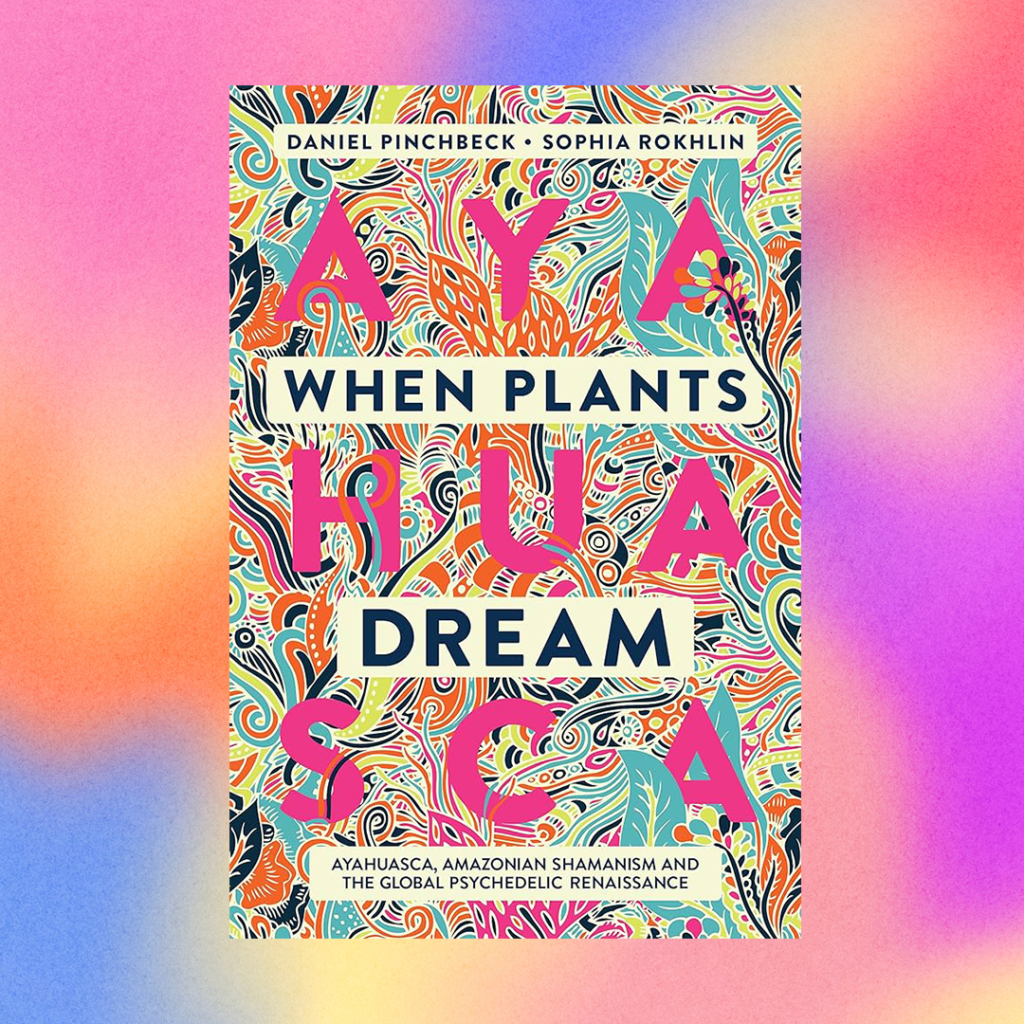
Ayahuasca is a powerful tool for transformation, that more and more Westerners are flocking to drink in a quest for greater self-knowledge, healing and reconnection with the natural world. This formerly esoteric, little-known brew is now a growth industry. But why?
Ayahuasca is a psychoactive brew that has a long history of ritual use among indigenous groups of the Upper Amazon. Made from the ayahuasca vine and the leaves of a shrub, it is associated with healing in collective ceremonies and in more intimate contexts, generally under the direction of specialist – an ayahuasquero. These are experienced practitioners who guide the ceremony and the drinkers’ experience.
Ayahuasca has gained significant popularity these days in cities around the world. Why? What effect might ayahuasca be having on our culture? Does the brew, which seems to inspire environmental action, simplified lifestyles and more communitarian behaviour, act as an antidote to frenzied consumerist culture?
In When Plants Dream, Pinchbeck and Rokhlin explore the economic, social, political, cultural and environmental impact that ayahuasca is having on society. Part 1 covers the background; what ayahuasca is, where it is found, and its cultural origins. Part 2 explores the role and practices of the ayahuasquero in both Amazonian and Western cultures. Part 3 examines the medicinal plants of the Amazon, looking particularly at the ingredients in ayahuasca and their therapeutic qualities, covering the most up-to-date biomedical research, psychedelic science and psychopharmacology. It also covers all the legal aspects of ayahuasca use. Lastly in Part 4 Pinchbeck and Rokhlin question the future of ayahuasca.
When Plants Dream is the first book of its kind to look at the science and expanding culture of ayahuasca, from its historical use to its appropriation by the West and the impact it is having on cultures beyond the Amazon.
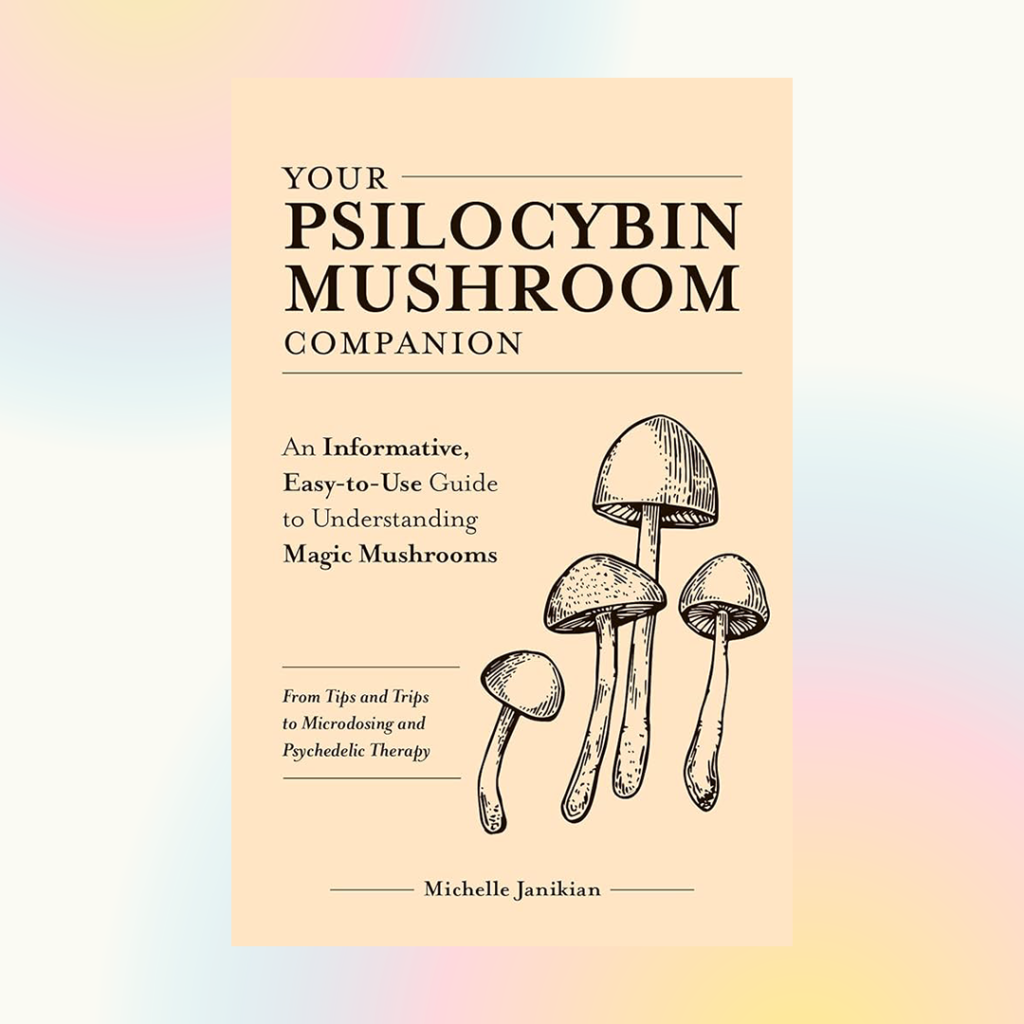
Learn. Prepare. Trip. Transform! Discover the transformational power of psilocybin mushroom with this all-encompassing guide to harnessing magic mushrooms safely and effectively.
With so much misinformation surrounding magic mushrooms out there, it can be hard to separate fact from fiction. This is where Your Psilocybin Mushroom Companion comes in to help. In this book, you’ll find a comprehensive yet friendly guide to everything there is to know about magic mushrooms.
Learn how to plan safe, effective trips with easy-to-follow step-by-step advice. Discover how to train a guide to take care of those on psychedelic voyages, as well as how to access the transformative nature of these experiences. Even learn how microdosing can improve your mood, cognitive functioning, creativity, physical stamina, and more.
With the most up-to-date research, Your Psilocybin Mushroom Companion will put magic mushrooms into perspective, dispel myths and urban legends, and open your mind to the benefits of psychedelic tripping.
PIHKAL: A Chemical Love Story / TIHKAL: The Continuation- Ann and Alexander Shulgin
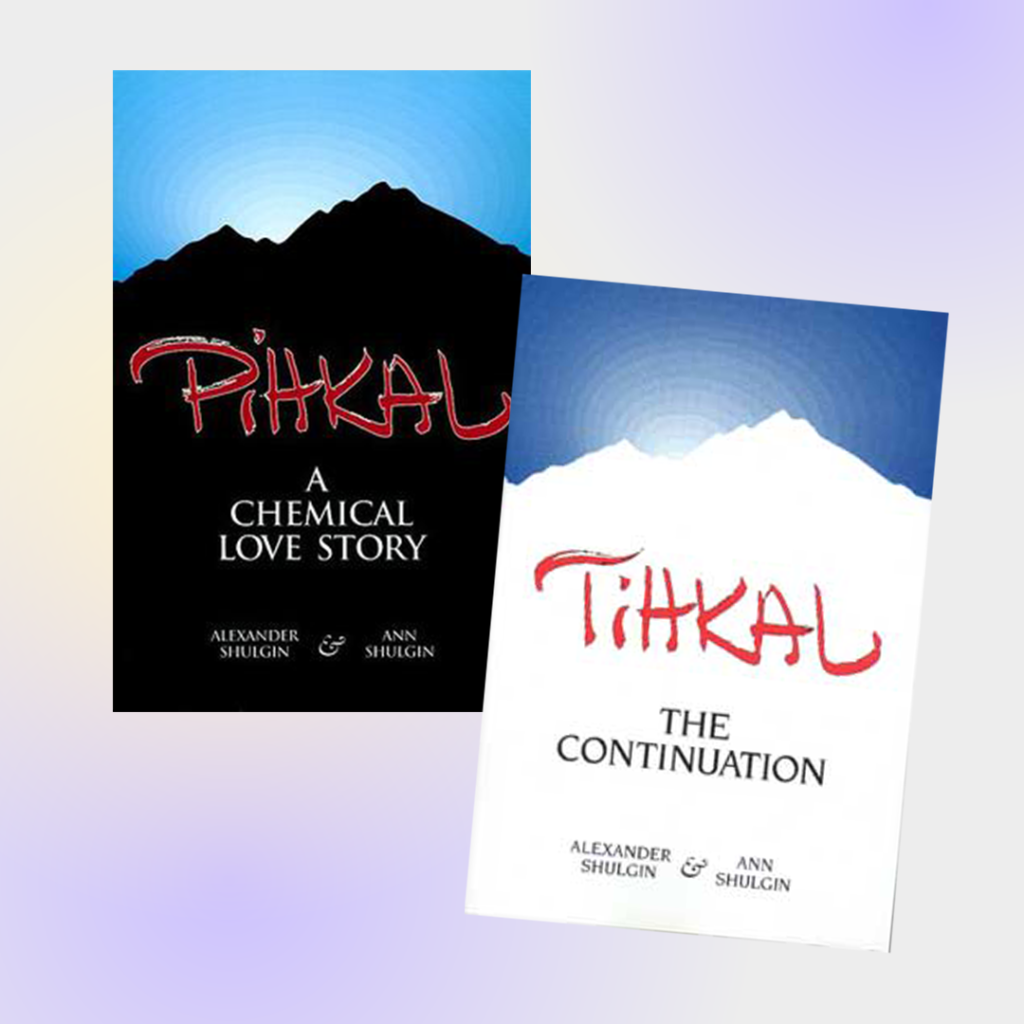
Alexander (better known as “Sasha”) and Ann Shulgin’s foundational work in the genre was the first book to fully impart the how-to chemistry, and convey the effects, of many of the entheogenic drugs that are currently being studied and used to heal trauma and deal with death. An acronym for “Phenethylamines I Have Known and Loved”, the book spans autobiography, organic chemistry, politics, ethnobotany, and psychopharmacology, and the cultural impact is likely to be profound for decades to come, as it has already. PiHKAL is divided into two parts, the first of which is a fictionalized autobiographical ‘novel’ – the main fiction is that it is fiction. This first half of the book is The Love Story, about two people named Shura and Alice who fall in love, though one of them is already in love with someone else. This love triangle is a painful ordeal they must go through, and that process unfolds before the reader with grace and great insight into human nature. Shura is a brilliant chemist who has dedicated his career to making psychoactive drugs, in the story they go through many experiences with the psychedelic compounds that Shura has discovered and has made in his lab, all of which have been bioassayed himself. The reader will find themselves going on this journey with them, experiencing what they experienced, both in their hearts and in the psychedelic journeys they have. The second half of PiHKAL is called The Chemical Story, and it contains detailed instructions for, and effects of, the synthesis of 179 psychedelic phenethylamines, which were mostly discovered by Shulgin himself. For each substance there is information on its synthesis, suggested effective dosage, duration, and detailed commentary on the subjective effects that were experienced. This book appeals to adults of all ages and cultures, and to the psychedelically experienced and inexperienced alike.
